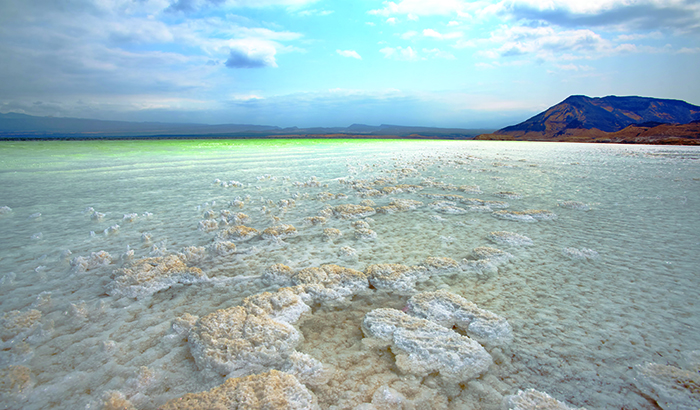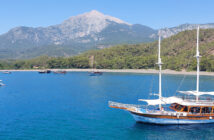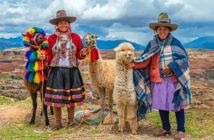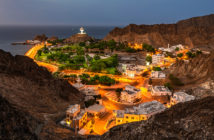When choosing a place to travel, you will usually go for the popular countries and their most-visited tourist attractions. But a small country filled with unusual landscapes like canyons, salt lakes, and extinct volcanoes will introduce you to a world of sceneries and activities less seen, less done and will give you a whole new perspective. The country of Djibouti located in the Horn of Africa will definitely surprise you.
The Republic of Djibouti has a unique and strategic location in the east of Africa, and therein lies the importance. Controlling the southern entrance of the Red Sea, Djibouti is overlooking the Strait of Babel Mandeb which is highly important for international trade and security. Almost 15% of global trade pass through this strategic waterway.
On June 27, 1977, Djibouti gained independence from France and became the Republic of Djibouti. HE Hassan Gouled Aptidon was the first president. Djibouti occupies a total area of 23.200 km2, with a population of about one million. Arabic and French are the country’s official languages.
Djibouti-Saudi Arabia Relations
The relations between the Republic of Djibouti and the Kingdom of Saudi Arabia are excellent and historical. According to some historians, the deep-rooted ties between the Arabian Peninsula and the Horn of Africa date back to more than 2,000 years, and there were social, cultural, and economic ties strengthened by human migration, trade, and religious factors.
The Kingdom of Saudi Arabia used to support Djibouti while struggling for its independence. Later on, Riyadh became the main supporter for the newborn state in terms of economic, political, diplomatic, scientific, and educational fields. The announcement of National Independence was acknowledged with the opening of numerous overseas embassies and consulates. Established in 1977, the Embassy of the Republic of Djibouti and the Kingdom of Saudi Arabia became one of the first embassies in the area.
Since the founding of these diplomatic offices, bilateral relations have continued to flourish. For over 40 years, Saudi Arabia supports and assists Djibouti on a regular basis. Furthermore, Saudi Arabia’s soft power activity towards Djibouti deepens the ties between these countries and their cultural, political, and foreign policy values. Saudi Arabia has become an essential part of Djibouti’s public works, social projects, and activities. The two countries have developed a variety of economic, educational, cultural, political, health, and social projects. The officials of these countries along with the private sector have been able to collaborate in harmony. This has strengthened both the political and strategic connections of the Republic of Djibouti and the KSA.
The introduction of a new strategic collaboration between the two countries was highlighted with the visit of the President to Saudi Arabia, in 2015. On this occasion, King Salman and President Ismail Omer Guelleh met in Riyadh and discussed the prospects for new projects and agreements between the two countries. The President awarded the King with the Djibouti Grand Star, in gratitude for his service to the Islamic and Arab nations. The president of Djibouti also commended the exceptional partnership between the two countries. It is not unusual for Ismail Omer Guelleh to often make mention of the Djibouti-Saudi Commission, which is the basis of this bilateral cooperation between the two countries and the Joint Business Council. It aims to bring together both of the business segments from these countries and has been quite successful.
These relations are frequently combined with new agreements and projects. Most recently, a new cooperation treaty was signed in 2017, in the fields of industry, energy, mineral wealth, and telecommunications. The settlement also included the fields of information technology, housing, health, agriculture, water, and environmental protection.
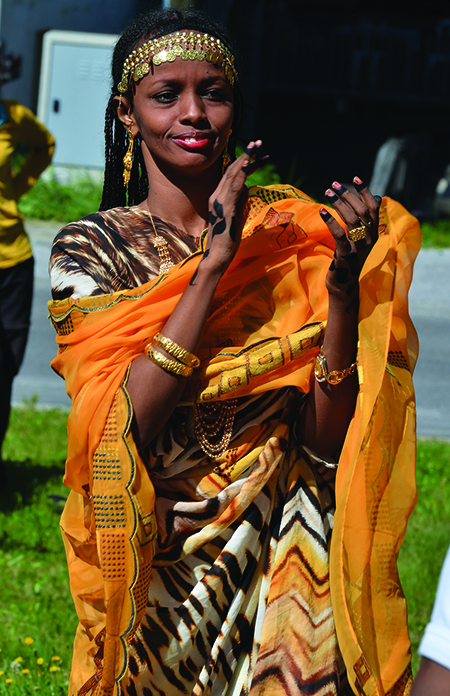 Tourism Sector
Tourism Sector
On April 19, 2018, the European Council of Tourism and Trade nominated Djibouti as the “World Capital of Culture and Tourism” and named President Ismail Omar Guelleh an honorary member of the Global Academy of Tourism.
The President of Djibouti received the award from the President of the European Council of Tourism and Trade, Professor Dr. Anton Caragea, and the Director of the European Academy of Tourism, Mircea Constantinescu.
Upon receiving the award, the President Guelleh stated: “This award is proof that Djibouti has chosen the right path by making tourism a pillar of development.”
For the same purpose, a ceremony was held in Djibouti in late April 2018 under the patronage of the President Guelleh. The first lady and president of the National Union of Women of Djibouti Mrs. Khadra Mahmoud Haid, the Prime Minister Abdelkader Kamel Mohamed, the President of the National Assembly Mr. Mohamed Ali Houmed, and many members of the government attended the event.
Where To Go
- Djibouti City, the capital of Djibouti, is one of the largest and most important touristic cities. It is an excellent start for trips to other areas. In the capital, there are many beautiful beaches such as Siesta, Douraleh, and Khor Ambado with a number of coffee shops and restaurants along the coastline. The capital also harbors the biggest International Free Trade Zone in Africa.
- Located in the western part of Tadjoura Province, at a depth of 155 meters below sea level is Lake Assal or the Lake of Honey. It has the largest salt reserves in the country and considered a national treasure. it is also expected to be listed as a world heritage site soon.
- Les Sept Frères Islands are in the Gulf of Tadjoura. They are home to the most important places for diving. The Abbeh Lake, on the other hand, lies on the border with Ethiopia. There are also the islands of Muskle and Mousha which are famous for snorkeling sites and clean beaches. Sharks come close to the shore in the months of November and December.
- The historical city of Tadjoura in the northern part of the country offers many scenic views, especially those overlooking the sea, and attracts many visitors to its beautiful and quiet area. Tadjoura was famous in the past for several names such as The “City of the Seven Mosques” and “White City” because of the many beautiful white houses situated in one of the oldest towns in the country.
- Ali Sabieh City is the capital of the Ali Sabieh region. It is located in a valley in the southern section of the country. The city is a mountainous and hilly town (756 meters above sea level). This altitude gives the place a milder climate compared to the coastal areas. To the east of Ali Sabieh is a grassland savannah which attracts many types of wildlife.
What To Do
- A city right on the coast, Djibouti has beautiful beaches and its water sports is the life of the sea. There are water adventures and also excursions to see the whales and dolphins. Wear that sunscreen and enjoy!
- Visit the wildlife of grassland savannah to the east of Ali Sabieh. See black-backed jackals, dorcas gazelles, Felis, caracal, hamadryas baboons and various bird species. Another option is to visit the wildlife refuge in Decan about 10km south of Djibouti City. The small nature reserve has its own ecosystem where cheetahs, lions, antelopes, zebras and kudus roam.
- One of the archaeological sites in Djibouti is the Abourma Rock Art Site where you can marvel at the well-preserved rock engravings that date back to the Neolithic times which were uncovered by a team of French archaeologists. These engravings depict animals that are no longer found in the area and also human figures.
- Be amazed with Lake Assal, or the “honey lake”, a crater lake located at the western end of Gulf of Tadjoura. It is the lowest point on land in Africa with its 155 m below sea level location and also the world’s largest salt reserve. The landscape surrounding the lake is also very interesting with dormant volcanoes and bans of salt and gypsum all around.
- Savor delicious fresh seafood in restaurants spread in the coastal areas. From gourmet to street dining places, the menu revolves around well-prepared and well-cooked fish dishes.

